Boyfriends & Girlfriends review: A middling tale on modern millennial love and friendships
Ujaan, Saumya, and Bunty, three bosom friends set out on a rollercoaster ride of self-discovery through the dynamics of love, relationships and friendship.
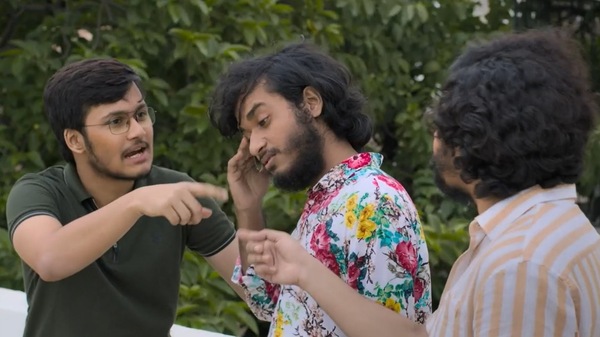
Last Updated: 02.17 PM, Sep 07, 2021
Story:
Ujaan, Saumya, and Bunty are bosom friends. Ujaan (Riddhi Sen), a Jadavpur University graduate, is an aspiring songwriter-composer-singer at heart who quits his job to pursue his passion. Saumya (Rwitobroto Mukherjee) is a corporate professional and Bunty (Ujan Chatterjee) runs his family’s sweet shop, Monohar Mistanna Bhandar. The trio have stuck together through thick and thin all along, sharing tidbits about their life, from anything to everything, well almost everything. However, their boy-gang paradise is blighted when their lives head off in different directions, sparking troubles and complications from Ujaan’s and Saumya’s romantic relationships while Bunty’s has a surprise in store. A rollercoaster journey of self-discovery follows.
Review:
Three young adults. Three fast friends. Enter love or the likeness. Conflict, complications. The climax, epiphanies, and the resolution (or the lack thereof), and life goes on. A coming-of-age story arc that’s too familiar by now for the average movie buff, more so for the millennials. But you would never mind a fresh fashioning of the template if it is well-woven and well told. Sadly, Suvankar Paul’s Hoichoi web series, scripted by Mainak Bhaumik, succumbs to being a half-baked and half-hearted shot at that.
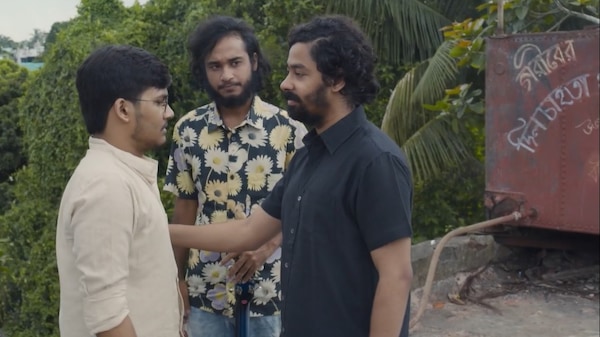
In Ujaan, Saumya, and Bunty’s world, akin to the times of modern love we live in, social media projection of love is the order of the day, the proclamation of love translates to WhatsApp display pictures, liking each other’s posts on social media, and unresolved past relationships resurface in the form of stalking exes on social media, and so on. Instagram filters, online dating, sex buddies, male ego and sexual insecurity, free love, family issues, live-in relationship, the small towner struggle to fitting into the big city life, cross-cultural love, are some of the concepts thrown around in Mainak Bhaumik’s story and script, but just that, as if ticking off checkpoints to pigeon-hole the story convincingly as a millennial relationship tale than delving any further and deeper into them.
The dialogues are signature Mainak Bhaumik style — crisp, youthful, with light-hearted humour and jabs, also peppered with pop culture references from Anjan Dutta, Nachiketa, to Prateek Kuhad, and Fifty Shades of Grey. There’s also a sly dig at the culture of resistance at Jadavpur University that would make you chuckle back. But the writing lacks any dramatic development, never really scratching beyond the surface of the conflicts (which by the way are themselves too low-key) or gradually mounting the tension to a convincing climax.
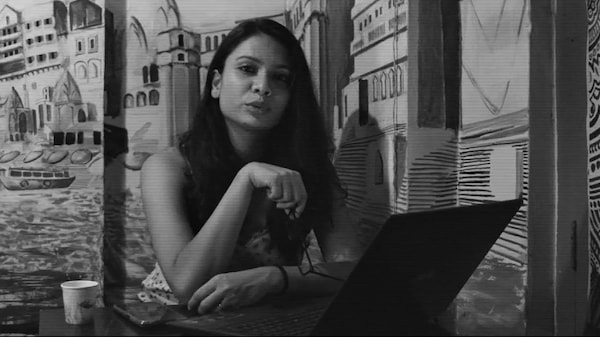
The series starts with a pop of youngsters mouthing platitudes about love. Ujaan takes over from them a la Bertold Brecht’s Breaking the Fourth Wall technique, which the characters spew along at key plot points too. The youngsters pop up with their one-liners at suitable points too. But not quite to an immersive effect.
Character arcs are done in a sketchy way, leaving it up to the viewers to fill in the multiple gaps here and there. For instance, Riya's boss Partha, a middle-aged man, who is impactful in her character arc, cries for more space. Saumya’s father, who bears on his life in a big way, is left loosely etched, making an appearance only at the last episode as if to tie up into a neat resolution, appearing contrived. We reckon that going deeper into the conflict points of the individual romantic arcs, the middle-class privilege of Saumya versus his sexual insecurity, Bunty’s family story, Ujaan’s male ego and the backstory of his father, Amrita’s struggles as a journalist balancing reality with rebelliousness, insights into Ujjaini aka Riya’s mind and her quest for love through multiple partners could’ve perhaps etched a more nuanced plot. Bunty’s surprise track is, however, a welcome twist for a story on modern love.
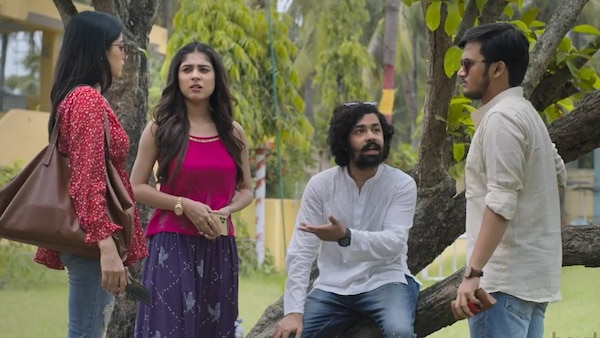
Suvankar Paul has directed the series. Mainak Bhaumik, who taps into the familiar forte of urban relationship dramas such as Maach Mishti & More, appears to have focused more on making his characters life-like as easy-breezy millennials who are navigating their own complications to find their own feet, love, and convictions in life. But overall, it isn’t so much as him going easy-breezy on the characters and their stories that rankles, as much as not turning really serious in the conflict points, which would have been in fact, more life-like.
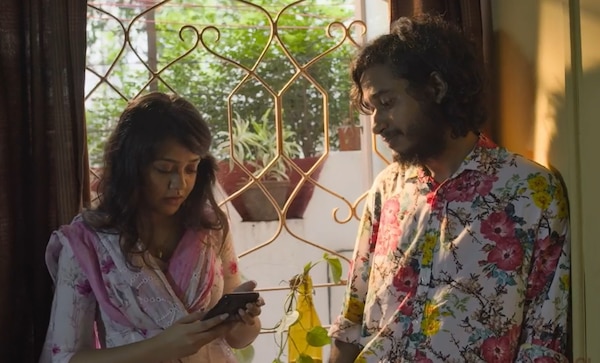
The actors do a fair job of the script. Their dialogue delivery and body language don’t seem affected. The talented Riddhi Sen, Rwitobroto, and Ujaan act it out naturally, and Riddhi excels in emotional scenes. The scene-stealers, however, are the girls. Madhurima Ghosh is bang-on believable, playing the beats of the spunky and self-assured Riya very well. Ishaa Saha as Amrita and Adrija Roy as Shreya inhabit their characters well too. There are few scenes with pink top lighting, lending additional shades and contours to human figures but on the whole, Kaustav Dhara’s cinematography is the usual fare. Anupam Roy’s Hariye Jawar Gaan from Uma fits well into the narrative. Amit-Ishaan's music (including background scores) will not disappoint you, but again, is run-off-the-mill for a young adult romance set in Kolkata’s middle-class milieu.
Verdict:
Unlike what Mainak had said, in an interview with The Telegraph earlier, that Boyfriends & Girlfriends is a desperate attempt to understand the youth of today, it is a bird-eye-view tale, which is in fact far away from capturing the nuances of young adult relationships and their troubles effectively. It’s a touch-and-miss glance that might work for you if you prefer the light-hearted take, or if you are a diehard fan of the actors or Mainak.
(The series is available for streaming on Hoichoi)
WHERE
TO WATCH
Subscribe to our newsletter for top content, delivered fast.
